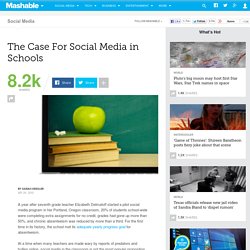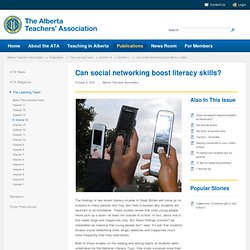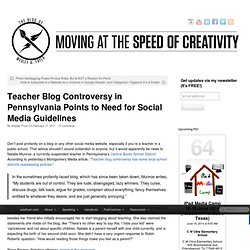

New social networks offer ‘training wheels' for young users. It’s a virtual jungle out there, especially for the young, with cyberbullies, online predators, smut and targeted advertising lurking around every corner it seems.

Even those ubiquitous social networking sites are a worry for parents, who sometimes react by trying to keep their children from interacting online. But there are sites offering social networking services specifically designed for kids. And their creators of such say they offer a safer, more age-appropriate opportunity for children to interact online and prepare to be good digital citizens, although some observers fear they still expose children to advertising and put their privacy at risk. Mainstream social networking sites such as Facebook have age restrictions to keep younger users off but those rules aren’t stopping kids from signing up. Facebook requires users to be at least 13 but Consumer Reports estimates 7.5 million users below that age have accounts. In particular, Ms. “However, Disney owns it. Mr. The Daily, Monday, May 10, 2010. Canadian Internet Use Survey. View the most recent version.

Archived Content Information identified as archived is provided for reference, research or recordkeeping purposes. It is not subject to the Government of Canada Web Standards and has not been altered or updated since it was archived. Please "contact us" to request a format other than those available. In 2009, 80% of Canadians aged 16 and older, or 21.7 million people, used the Internet for personal reasons, up from 73% in 2007 when the survey was last conducted. Rates of Internet use increased in every province during this two-year period. Among census metropolitan areas, the highest rates of Internet use were reported in Calgary and Saskatoon, both at 89%. Among Canadians living in communities with a population of 10,000 or more, 83% used the Internet compared with 73% of those from communities with fewer people.
F25.pdf - Powered by Google Docs. Back to School: Tips for Teachers on Facebook (1) Nov.2008-Facebook-How to Protect.pdf - Powered by Google Docs. The Case For Social Media in Schools. A year after seventh grade teacher Elizabeth Delmatoff started a pilot social media program in her Portland, Oregon classroom, 20% of students school-wide were completing extra assignments for no credit, grades had gone up more than 50%, and chronic absenteeism was reduced by more than a third.

For the first time in its history, the school met its adequate yearly progress goal for absenteeism. At a time when many teachers are made wary by reports of predators and bullies online, social media in the classroom is not the most popular proposition. Teachers like Delmatoff, however, are embracing it rather than banning it. They argue that the educational benefits of social media far outweigh the risks, and they worry that schools are missing out on an opportunity to incorporate learning tools the students already know how to use. What started as a Facebook-like forum where Delmatoff posted assignments has grown into a social media component for almost every subject. 1. Can social networking boost literacy skills? The findings of two recent literacy studies in Great Britain will come as no surprise to many parents and may also help to explain why students are reluctant to do homework.

These studies reveal that most young people never pick up a book—at least not outside of school. In fact, about one in five reads blogs and magazines only. But these findings shouldn’t be interpreted as meaning that young people don’t read. It’s just that students browse social networking sites, blogs, websites and magazines much more frequently than they read books. Both of these studies on the reading and writing habits of students were undertaken by the National Literacy Trust. Let’s explore these findings in more depth.
But do social networking sites have any educational benefits? According to one of the studies, 49 per cent of young people believe that writing is “boring.” The study also explored why young people who lack confidence in their writing ability perceive themselves to be poor writers. When will schools begin using social media? Who's doing it well right now? Social Media in Education - Ppt Presentation. Beyond Blocking Embracing the social web : Beyond Blocking Embracing the social web By Melanie McBride This work is licensed under the Creative Commons Attribution-Noncommercial-Share Alike 2.5 Canada License An introduction to social media tools and trends for information managers in education. The value of social media isn’t always clear: The value of social media isn’t always clear So let’s look at the facts.
So let’s look at the facts . PowerPoint Presentation: 5 facts 1. The Double Edged Sword of Technology. New technologies are invaluable tools for enhancing the educational experience, but they are indeed a double-edged sword Increasingly, teachers are experiencing employment and professional-conduct difficulties related to digital technology.

Teachers are also being adversely affected by student or parent misuse of technology. Each week, the Association’s Member Services staff work with at least half a dozen teachers experiencing problems in this area. Inappropriate Use of Employers’ Technology Arbitration decisions have repeatedly affirmed employers’ rights to monitor the technology they provide to employees and to discipline staff for inappropriate use of technology. Teachers need to be aware of the sophistication of monitoring programs used by employers. Teacher Blog Controversy in Pennsylvania Points to Need for Social Media Guidelines. <div class="greet_block wpgb_cornered"><div class="greet_text"><div class="greet_image"><a href=" rel="nofollow"><img src=" alt="WP Greet Box icon"/></a></div>Hello there!

If you are new here, you might want to <a href=" rel="nofollow"><strong>subscribe to the RSS feed</strong></a> for updates on this topic.